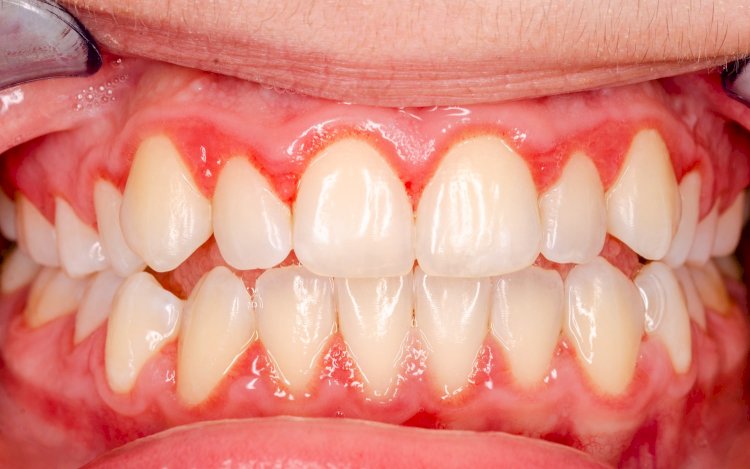Periodontitis - Gum Disease

Periodontitis, also called the gum disease, is a serious gum infection that damages the soft tissue around teeth. Without treatment, periodontitis can destroy the bone that supports your teeth. This can cause teeth to loosen or lead to tooth loss. Periodontitis is common but can usually be prevented. It's often the result of not taking care of your mouth and then your teeth. To help prevent periodontitis or improve your chance of successful treatment, brush at least twice a day, floss daily and get regular dental checkups.
Symptoms
Healthy gums are firm and fit snugly around teeth. The color of healthy gums can vary. They may range from light pink in some people to dark pink and brown in others.
Symptoms of periodontitis can include:
- Swollen or puffy gums.
- Bright red, dark red or dark purple gums.
- Gums that feel tender when touched.
- Gums that bleed easily.
- A toothbrush that looks pink after brushing your teeth.
- Spitting out blood when brushing or flossing your teeth.
- Bad breath that won't go away.
- Pus between your teeth and gums.
- Loose teeth or loss of teeth.
- Painful chewing.
- New spaces that develop between your teeth that look like black triangles.
- Gums that pull away from your teeth, making your teeth look longer than usual, called receding gums.
- A change in the way your teeth fit together when you bite.
When to see a dentist
Follow your dentist's recommended schedule for regular checkups. If you notice any symptoms of periodontitis, make an appointment with your dentist as soon as possible. The sooner you get care, the better your chances of reversing damage from periodontitis, preterm birth and low birth weight, and problems controlling blood sugar in diabetes.
Prevention
The best way to prevent periodontitis is to get into the habit of taking good care of your mouth and teeth. Start this routine at a young age and keep it throughout life.
- Good oral care. This means brushing your teeth for two minutes at least twice a day - in the morning and before going to bed - and flossing at least once a day. Flossing before you brush allows you to clean away the loosened food bits and bacteria. Good oral care keeps your teeth and gums clean and removes the bacteria that cause periodontal disease.
- Regular dental visits. See your dentist regularly for cleanings, usually every 6 to 12 months. If you have risk factors that increase your chance of developing periodontitis - such as having dry mouth, taking certain medicines or smoking - you may need professional cleaning more often.
